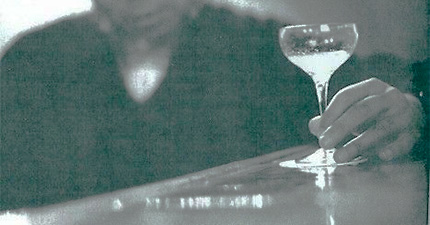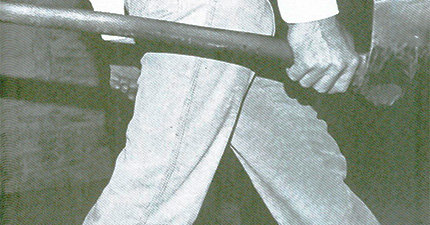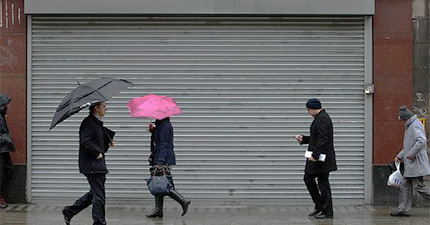There is a tendency, or maybe it is a trend, within feminism in the West to fetishize the rebel. We love the brave, the outspoken, the angry, and the tenacious. We love the loud because women are often told to be quiet and queers are often told not to exist. And, sometimes, we also blame the quiet women and we forget to respect the closet.
There is also a tendency within western feminism to proclaim guilt over what is called unearned privilege loudly. Maybe there’s a relationship to Christianity and its overbearing confessions of sins here. Maybe not. I don’t know. What I do know is that, often, it is hard to tell the difference between what is a privilege and what is a survival need.
Having secure housing, being able to afford food, having culturally compatible foods available, being able to visit your relatives, having access to education, physical mobility, having access to the internet, having access to paxlovid—these are all things that not everyone has and, yet, sometimes, these are also things that help keep us alive.
Asking what the difference between an unearned privilege and a survival need can sometimes feel like asking what is the difference between regular guilt and survivor’s guilt. Not always—sometimes.
I’ve been thinking about how, when we think about our ancestors who survived the perpetual and ongoing eugenics campaigns that still plague us through market rate rents and work at will laws, it’s much easier to imagine the brave ancestors, the ones who were outspoken and rebellious and who always stood up for themselves and other people. We yearn for courage when we try to figure out how to survive.
And, yet, survival is immensely complicated. Sometimes, people survived through rebellion. Sometimes, people survived through manipulation, through keeping quiet during cultural revolutions, by hiding, by making bad jokes about tragic situations just to keep some emotional distance, by doing drugs, by having poor habits, and by eating a relative.
Some of our ancestors survived by participating in the economy. Can we forgive them for it? Is it even up to us to forgive them if we survive by sometimes participating in a violent economy?
I don’t know what I’m trying to say here. Probably, nothing politically urgent. But I often run into this with clients and I also feel this in my own bones. It is much easier to love a remembered self who said the right things, who said no loudly and clearly, who fought and who rebelled. It is much harder to love and support a remembered self who didn’t say no, who didn’t fight, who collapsed maybe or froze, who did the things that kept themself safe but no one else.
If memory is ancestral and we can physically feel the memories of those who survived before us, then we feel the survival of all of our ancestors. We know courage and rebellion. We also know complacency and the giving into fear.
I remember reading a book about feminism within South Asia. I forget the name of the book and I don’t have it on hand because I borrowed it from a friend or else I would put it here (I do remember it had a purple cover). In the book, the writer talked about how white feminism often erases south asian feminist survival practices and casts them as subservience or complacent. I feel that the same can be said about how white feminism sees some east asians though I’m not sure about this. In the last few decades, Chinese feminism has been coopted into a Communist state that it sometimes entertains and other times resists. It’s very much a worker’s feminism.
The thing about eugenics is that it tries to kill women but, sometimes, it offers them a way to integrate themselves into a eugenics society through accepting social control. Eugenics tries to kill people of color and it also sometimes offers us a way to integrate ourselves into a eugenics society through accepting social control. It tries to kill queer people and it also sometimes offers us a way to integrate ourselves into a eugenics society through accepting social control.
People will always survive eugenics because one is a system and one is life. Life will always survive systems because life is more powerful, chaotic, and enjoyable than systems. And, we remember with our bodies and very present emotions those ancestors who survived systems by mimicking them, by disappearing, by being a good worker, and by marrying against consent.
These are memories. We can’t change the past even though every survivor might have a moment when we yearn to. These are memories and the information they give us lives within us.
I wonder if we can forgive ourselves for our own survival. Our ancestors must have found a way to do so since we all have ancestors who killed other beings to eat them. It seems important to do so—to find the will to life. If our duty is to find the will to power, collective power, so that we can keep living together then it seems important to find the will to live first or during this slow and momentous organizing process.
I think that western feminism loves a rebel because the West has learned to love a hero. But, sometimes, we encounter situations where there are no winners. We encounter perpetual wars and pandemics and famines. We encounter situations where heroism is not possible because there is no way to win, only to survive. And then, we must learn to love those who can never be heroes. We must learn to love ourselves.
1 of 188
>>>


